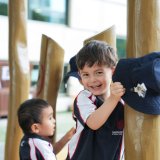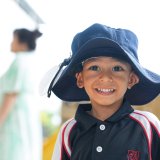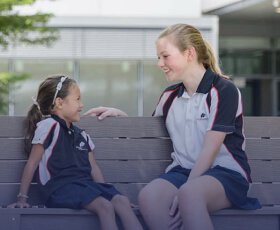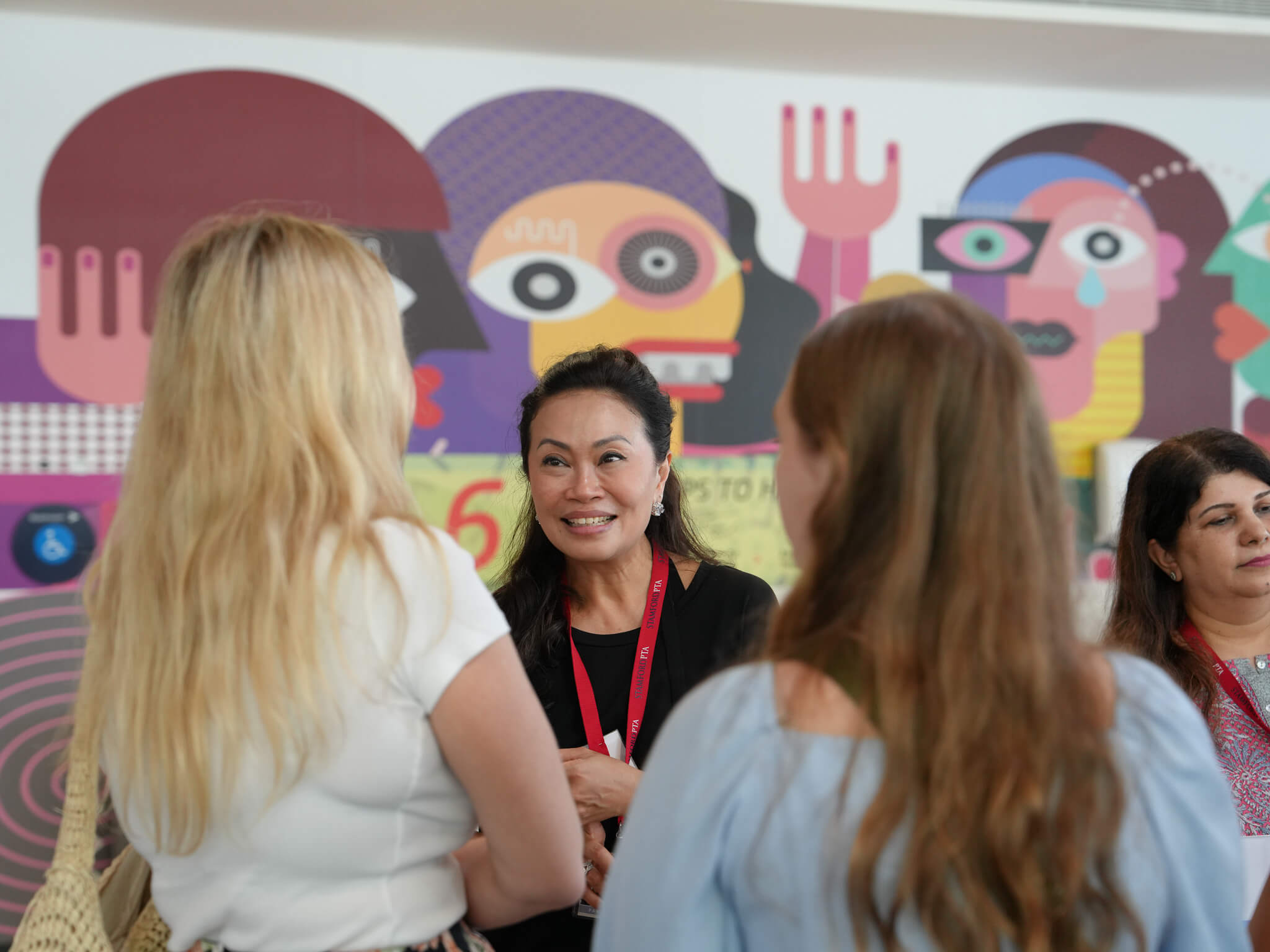
Campus tours are an invaluable opportunity for you and your child to experience firsthand the environment, facilities, and culture of an international school. These tours allow you to observe and evaluate the quality of education and support services offered, while also engaging with the school community to gather insights into how well the institution can foster your child’s personal growth.
To help you make an informed decision about your child’s education, here is a list of key questions to consider during your campus tour.
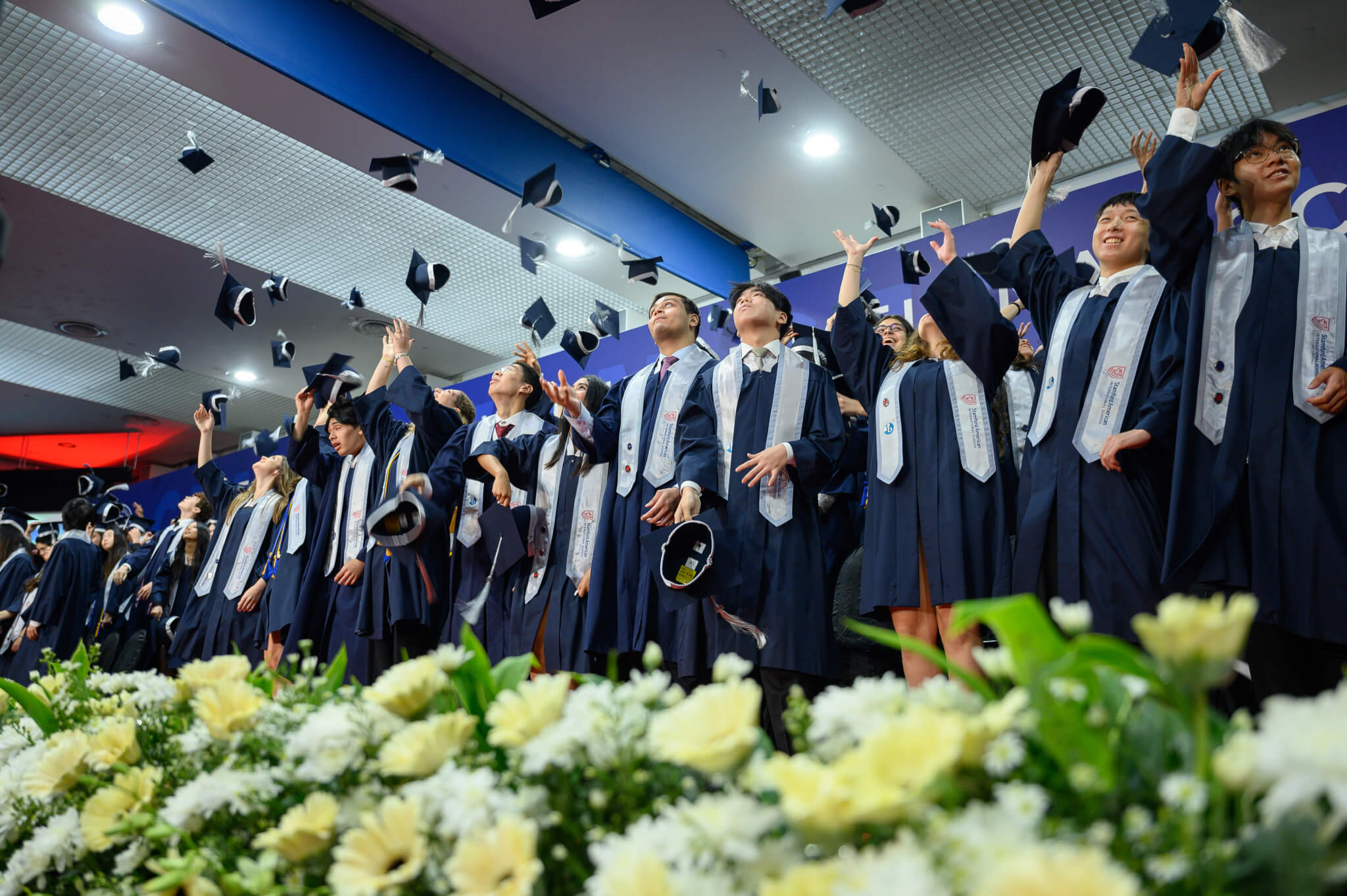
What Curriculum Does the School Follow?
The school’s curriculum defines the educational framework and standards that will shape your child’s learning experience. It’s essential to determine if the curriculum aligns with your child’s needs, future goals, and your family’s educational philosophy and expectations. Here are some curriculum options you might encounter:
International Baccalaureate
Many international schools in Singapore, including Stamford American International School, offer the International Baccalaureate (IB) curriculum. The IB programme is designed to empower students to become self-regulated learners who are motivated to succeed in a highly interconnected world. Depending on your child’s age or grade level, you might be interested in the following programmes that make up the IB continuum:
- Primary Years Programme (PYP) – For students ages 12 and younger
- Middle Years Programme (MYP) – For students ages 11-16
- Diploma Programme (DP) – For students ages 16-19
- Career-related Programme (CP) – for students ages 16-19
National Curriculum
Some schools follow national curriculum from countries like the United States, Australia, Germany, India, and the United Kingdom. New students may find it easier to adjust to an international school that employs a national curriculum with which they are already familiar. However, many international schools offer flexible curriculum designed to support students from diverse backgrounds as they adapt to their new environment.
In addition to the national curriculum, some schools also offer a range of academic programmes and qualifications, including:
- American Education Reaches Out (AERO) – This programme supports American standards-based education and provides a framework for academic consistency from Kindergarten to Grade 12.
- Advanced Placement (AP) – AP courses expose Grades 10-12 students to college-level courses while they are within the supportive framework of a high school environment.
- Business and Technology Education Council (BTEC) – The BTEC is a UK-based vocational education programme that trains Grades 11-12 students in a variety of technical subjects and specializations.
- General Certificate of Secondary Education (GCSE) – The GCSE is a set of academic qualifications taken by students in the UK and other countries when they finish their secondary education.
Early Childhood Education Frameworks
In Singapore, several international schools provide infant and childcare services alongside their educational programmes. Many of these childcare providers and preschool programmes embrace the following teaching philosophies:
- Reggio Emilia – Reggio Emilia is an experiential and student-centered approach that operates on the assumption that young children form their own personalities during their early development.
- Early Years Foundation Stage (EYFS) – The EYFS refers to the standard that early care providers in England follow to promote the health and development of children ages five and younger.
- Montessori – Montessori is a child-centered and hands-on approach to early childhood education that sees children as active participants in their own development.
Schools can offer more than one curriculum to their students. For instance, all Stamford high school students receive a US-accredited High School Diploma upon graduation. In addition, students also have the option of choosing between an IB Diploma Programme pathway or and an individualized pathway that combines IB courses, AP courses, BTEC courses, and Stamford courses. It’s best to inquire about these options while visiting the school in person.
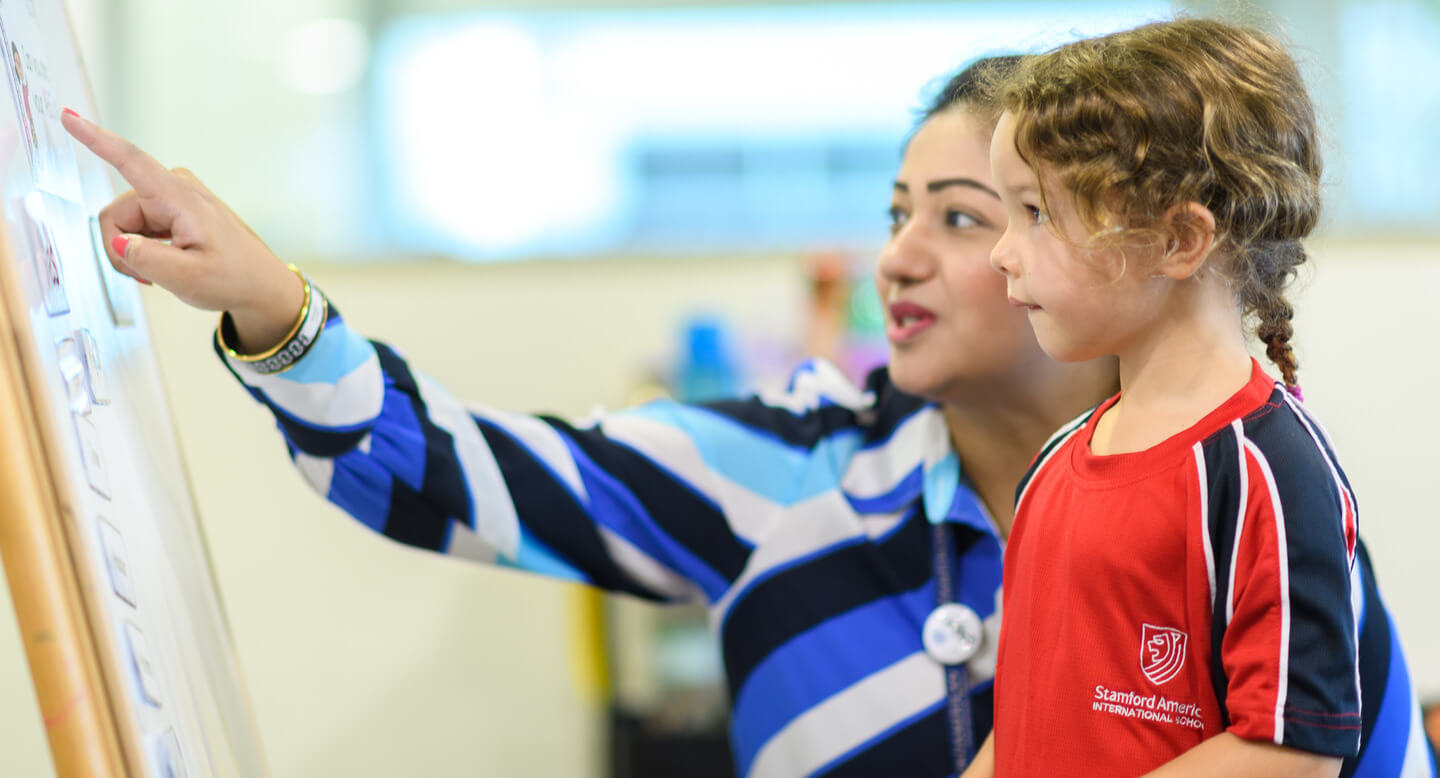
What Is the School’s Philosophy and Mission?
Understanding the school’s philosophy and mission provides invaluable insight into its core values and educational approach. During the campus tour, observe examples that illustrate the school’s commitment to its mission and vision. Pay attention to how the facilities and curriculum reflect these values. This will help you assess whether the school’s ethos aligns with your own beliefs and expectations for your child’s education.
What Are the Qualifications of the Teaching Staff?
The school’s teaching staff plays a key role in supporting student development and shaping school experiences. Highly qualified and experienced teachers are more likely to provide high-quality instruction and support. To assess the quality of education your child will receive, review information about the teachers’ educational backgrounds and teaching experiences. School visits provide an ideal opportunity to inquire about teacher turnover rates and the support the school offers for teachers’ professional development.
What Is the Student-Teacher Ratio per Class?
The student-teacher ratio is a crucial indicator of student success and engagement. A lower ratio is desirable as it is conducive to more personalized instruction and better student-teacher interactions. With smaller groups, teachers are better able to adapt their teaching to individual learning needs. Students in small classes are also more likely to stay engaged and ask questions. Inquire about the average class size and strategies teachers use to manage their classrooms. As you tour the campus, observe how the ratio varies across different grade levels and subjects. If the ratio fluctuates, note how the school maintains quality teaching and ensures effective learning outcomes in each setting.
What Language Programmes Does the School Offer?
International schools serve students from a wide range of linguistic backgrounds, making language acquisition, development, and integration programmes crucial. Inquire about these programmes to understand how the school supports non-native English speakers and assists multilingual families in adapting and thriving in the academic environment.
- Mother Tongue Programme – These programmes are conducted using the student’s mother tongue or the language with which they are most familiar.
- English as an Additional Language – These classes are designed to guide students in their English language learning journey and help them fully integrate into their homeroom classrooms.
- Daily Language Lessons – These classes enable students who want to learn a new language to practice daily and continuously improve their level of proficiency.
- Bilingual Classes – Bilingual classes refer to subjects that are conducted by teachers who are proficient in two languages and can fully engage with the students.
Schools with comprehensive language programmes are better equipped to support students in achieving language proficiency. During your visit, take the opportunity to explore the qualifications of the language teachers, the availability of language labs, and the range of extracurricular language activities offered by the school.
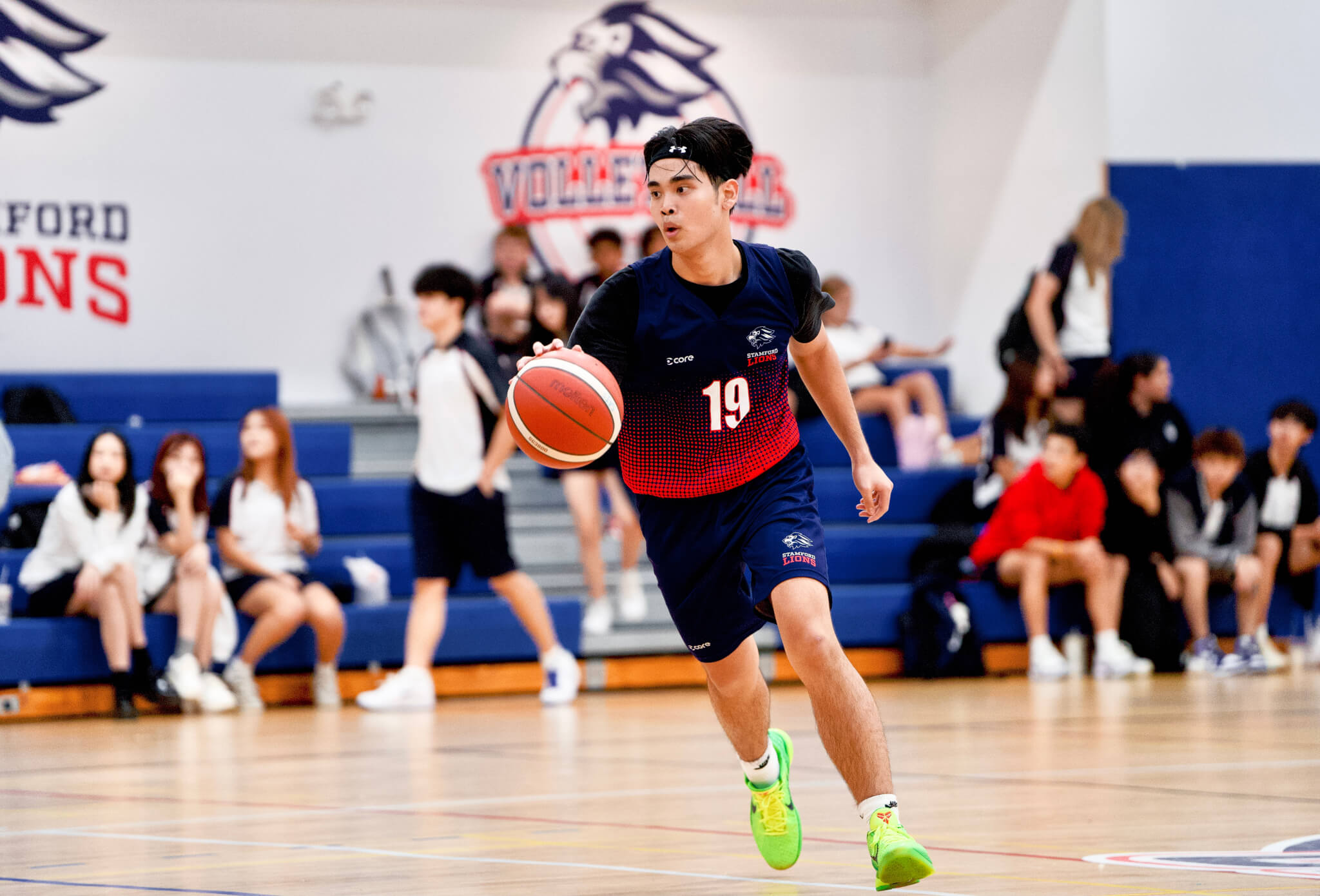
What Facilities for Extracurricular Activities Can Students Access?
Facilities for extracurricular activities are crucial in fostering well-rounded development in students. By offering spaces for various co-curricular pursuits, schools can enhance students’ skills and talents beyond the academic realm. Many international schools in Singapore provide a diverse array of co-curricular activities, including sports, arts, music, clubs, and service learning programmes. These programmes are supported by facilities such as:
- Makerspaces – These collaborative working spaces typically feature supplies and equipment that students and teachers can use to share ideas and realize projects.
- Theaters, Art Rooms, and Music Rooms – These serve as creative spaces where students who are involved in the performing arts and visual arts can create, rehearse, and perform.
- Gymnasiums, Courts, and Athletic Fields – Sports facilities allow students to train and play games within the campus.
To learn more about these activities, inquire about the level of student participation and involvement. Additionally, explore any notable achievements or distinguished programmes that the school may be recognized for.
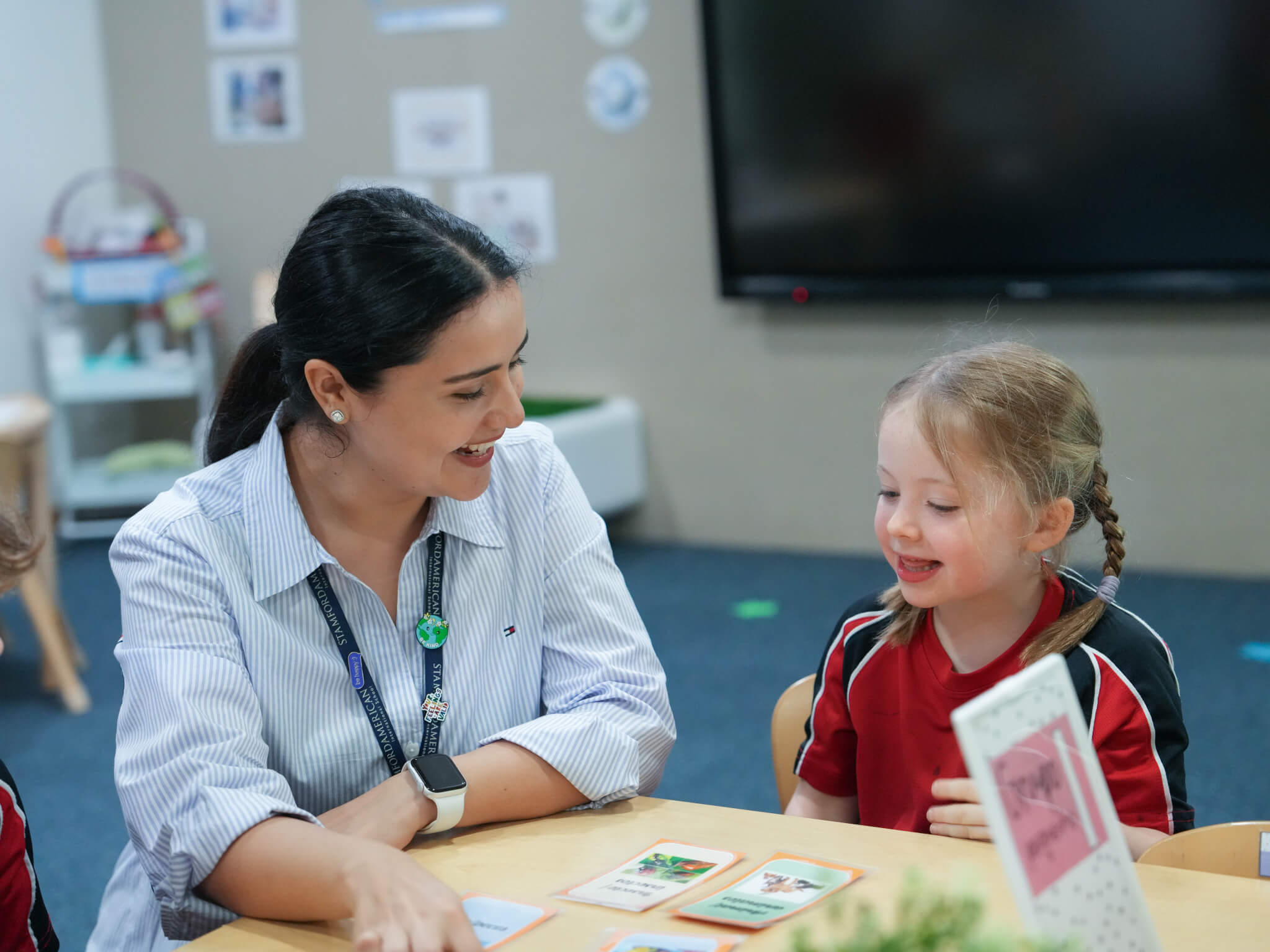
What Kind of Support Services Can Students Access?
Schools are responsible for looking after the overall well-being of their students. They must be able to offer support programs that can effectively address their students’ academic and social needs. Make it a point to ask if the school offers counseling or academic and health services such as:
- Early Intervention – These are designed to identify and address developmental concerns among learners in early childhood education programmes.
- Academic Support – These programmes assist students in addressing academic challenges and offer them extra support that will empower them to master subject areas.
- Counseling Services – School counselors work with teachers and parents alike to help students overcome social and emotional hurdles.
- Speech and Language Therapy – Conducted by speech and language therapists, this type of support service aims to help students develop skills for effective communication.
- Occupational Therapy – Students who need support in developing fine motor skills, emotional regulation, and self-management can benefit from this.
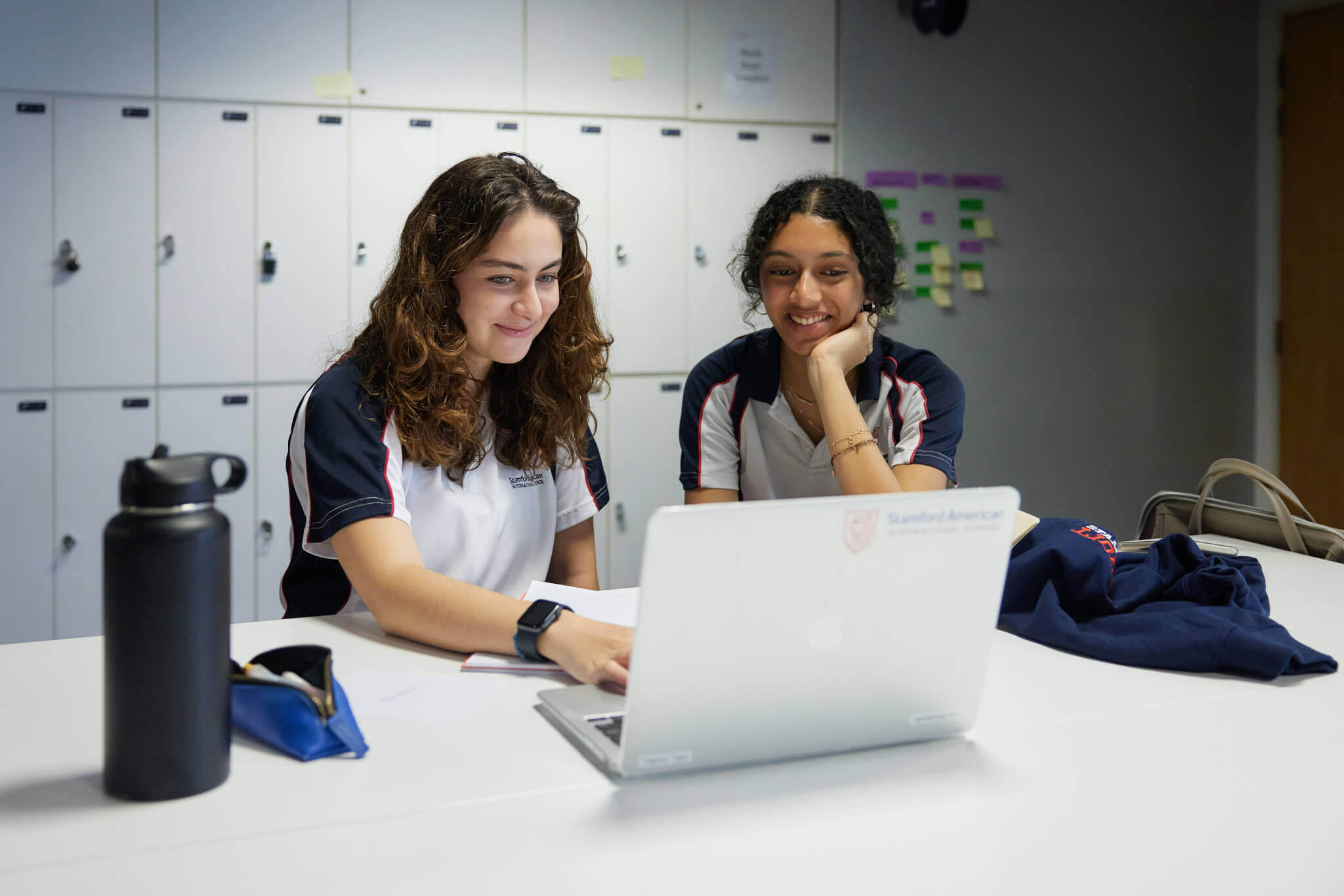
How Is Technology Integrated into the Curriculum and Classroom?
Preparing students for the future means ensuring that they develop a high level of proficiency with digital tools and technologies. By integrating smart devices and systems into their teaching and learning processes, schools can help students develop their digital competency.
A campus tour is a good time to find out how the school uses technology-enabled products and digital tools to enrich learning. If the school offers science, technology, engineering, and mathematics (STEM) education, inquire about the facilities and resources students can use in STEM classes, such as:
- Common Sense Education – This programme is designed to help students take ownership of their digital well-being and equip them with the sensibilities and skills to thrive in the digital age.
- Learning Management Systems – The use of digital platforms allows students to easily access supplementary support when learning in class, after school, or at home.
How Does the School Assess Student Progress and Report to Parents?
As a parent, it’s important to understand how an international school evaluates student performance and communicates feedback. For example, does the school employ comprehensive assessment strategies, including both formative and summative assessments? Are regular progress reports provided to both parents and students? Is there a dedicated space for discussion between parents and teachers regarding student progress? Some of the facilities that are available for parents to connect with teachers and stay updated include the following:
- Parent Cafes – These meeting spaces are designed to allow parents and teachers to connect with the community and align their strategies to support students.
- Online Portals – Parents and teachers can use digital platforms to update each other about student activities and events.
- Parent-Teacher Associations – Membership in these groups can help parents become more involved in the school community.
The availability of such facilities illustrates how the school treats parents as co-partners in supporting the continuous improvement of students.
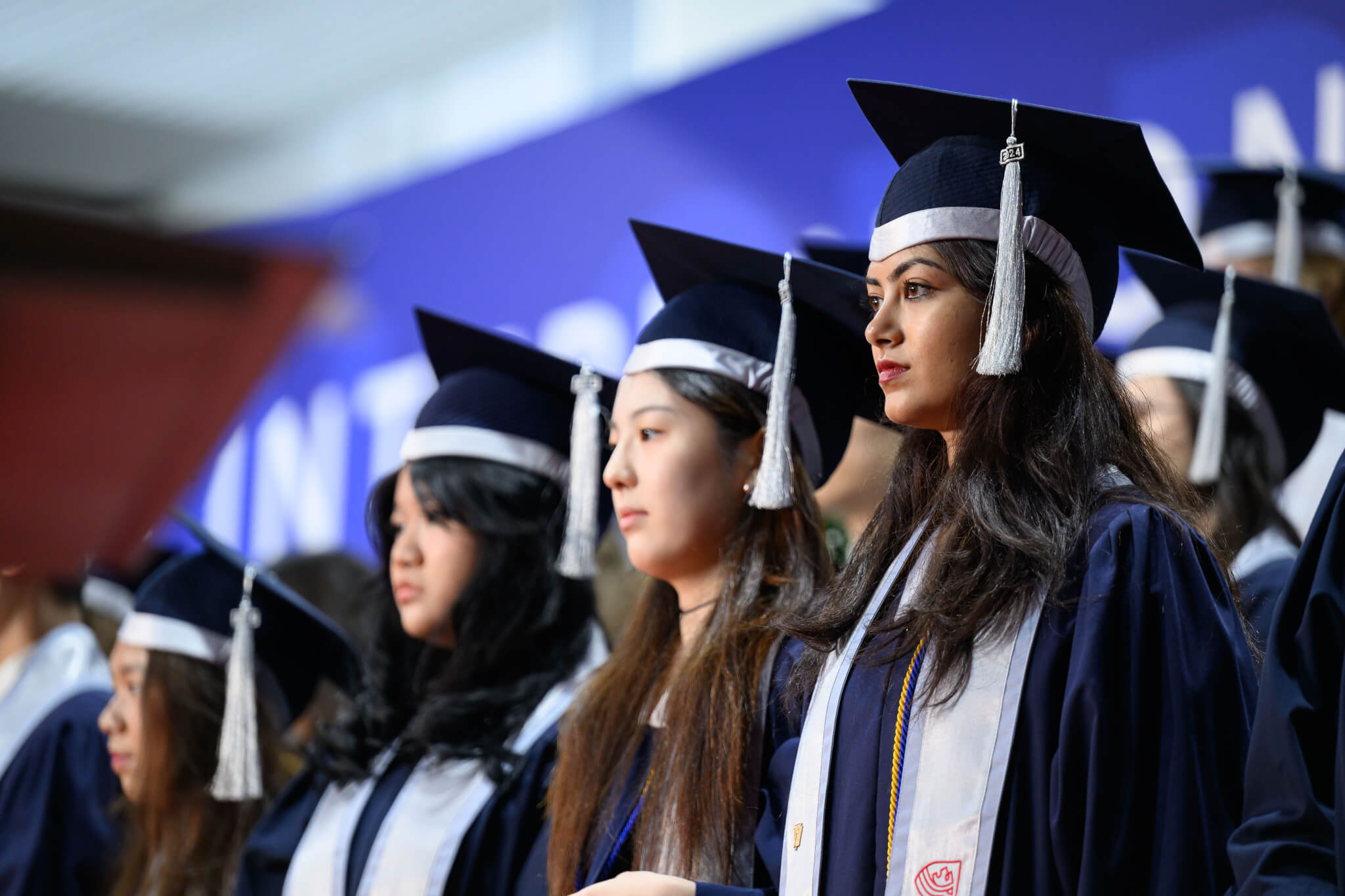
What Kind of University and Career Guidance Does the School Provide?
For parents of older children, the availability of university and career guidance services is a crucial factor. You want an international school that effectively prepares students for their future academic and career endeavors.
During your visit, ask if the school has dedicated college counseling facilities and services. These resources can help your child with college applications, career planning, and skills development. Some schools offer one-on-one counseling and various resources to assist students in exploring career options. Additionally, take this opportunity to explore the school’s track record in university placements and its partnerships with businesses.
What Health and Safety Measures Does the School Have in Place?
During the campus tour, gather detailed information about the school’s medical facilities and protocols, as well as its security measures. This information will provide insight into how the school manages medical concerns and ensures your child’s safety and well-being, even in emergencies.
Asking these questions during an international school campus visit empowers you to thoroughly evaluate your options and make an informed decision about your child’s enrollment. This thoughtful approach ensures that you select a school that aligns with your academic expectations and supports your child’s overall development and well-being.
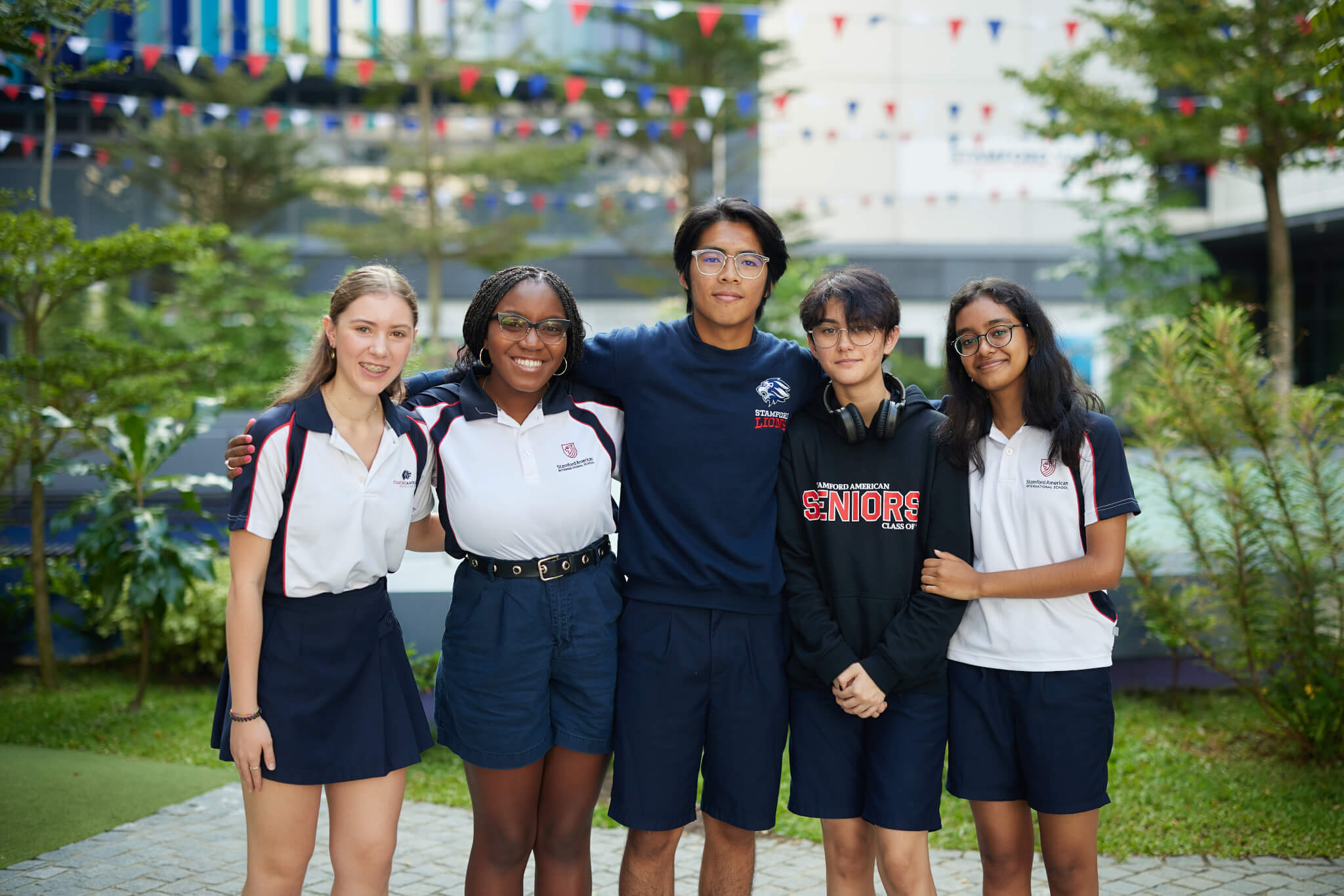
World-Class Education and Bespoke Campuses
Stamford American International School offers students two unique learning pathways that include the IB, AP, and BTEC, and two purpose-built campuses: our Early Learning Village in Lorong Chuan Lane and our Elementary and Secondary School Campus in Woodleigh Lane.
At the Early Learning Village, our early years curriculum takes on a richer approach to our IB-inspired curriculum by making use of the environment to foster a play-based type of learning. This approach to early childhood education aligns with the educational philosophies that the IB upholds for older students.
Meanwhile, the educational frameworks used in the Grades 1-12 classes held at our Woodleigh Campus seamlessly integrate American and international curricula. We offer a challenging American Curriculum that adheres to American Education Reaches Out and Next Generation Science Standards. This is combined with the International Baccalaureate Programme, under which we offer the Primary Years Programme (PYP), Middle Years Programme (MYP), and Diploma Programme (DP). We also offer an individualized pathway for high school students to take a combination of IB, AP, BTEC and Stamford courses according to their academic and career goals.
The world-class education that we offer is complemented by bespoke campuses designed to support students in their journey as lifelong learners. Our Early Learning Village is designed to provide young children the space and freedom to explore the environment, and express themselves. It features six outdoor play zones, a covered swimming pool, an air-conditioned gymnasium, a health center, a parent cafe, and multi-functional specialist rooms for different class activities. Our Woodleigh Campus, has classrooms tailored to different grade levels, spacious libraries, science and technology laboratories, study spaces, parent cafes, and a 500-seater professional theater. We also have sports facilities such as an arena, a sports field, a swimming pool, and tennis courts.
All our faculty members are trained in the IB curriculum, and they emphasize active and collaborative learning in their teaching philosophies. We also have staff members who are dedicated to ensuring that students and their families receive the support they need at our school.
Get to know our international school community better by scheduling a campus tour today.
Visit us so we can discuss how we can work together and help your child become an active learner.


